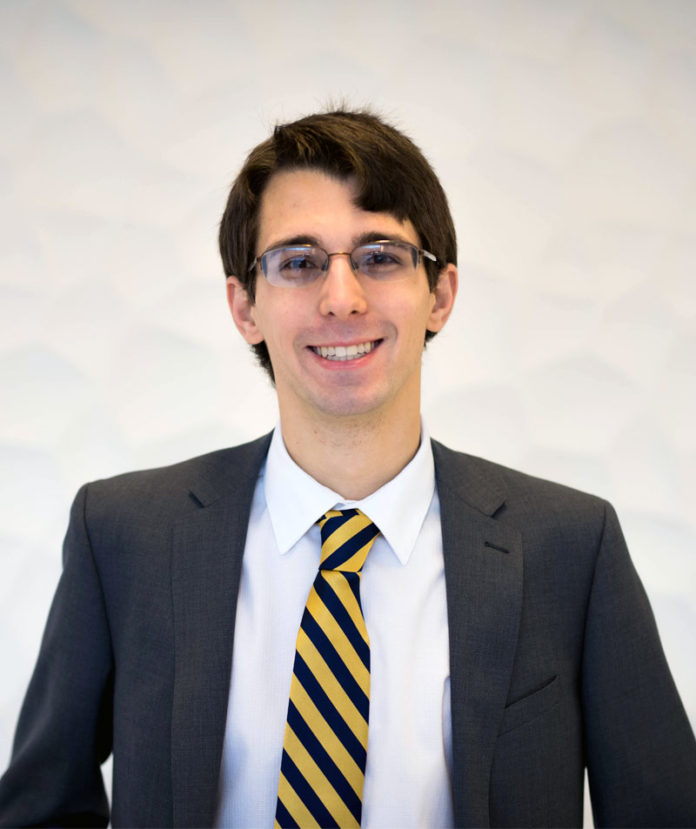If he can’t pay his entire tuition with the loan he receives, Rajpreet Sehra would rather not have a loan at all. The mechanical engineering co-op student believes he is lucky because he earns money and experience with his co-op placements but others are not so lucky.
“I’m not too interested in what builds up [the OSAP amount], as long as I’m not able to pay 100 per cent tuition, it’s irrelevent,” Sehra said. “I’m on the lucky side of this. I go to work every four months at a decent engineer’s pay, and even after that, I am having problems … So you can keep the loan money unless I actually get the rest of the grant to pay the entire tuition, I’m sitting at home, irrespective of if I get a loan or not. “
In January 2019, the rovincial Conservative government announced changes to OSAP and tuition structures for post-secondary education.
These changes included: removal of all free-tuition and introducing a mandatory 10 per cent loan; the Student Choice Initiative, which makes some “non-essential” fees optional; and a 10 per cent reduction in fees across the board.
Now, students are receiving their OSAP estimates for the 2019-2020 academic year, and many are dismayed at reduced funding. For some students, this may mean they are unable to attend school in the coming academic year.
Matthew Gerrits, Feds VP Education, recognizes that some students will need to readjust their budgets for upcoming year.
“I think that students are really going to start to adjust and they’re going to have to start to adjust on their own terms,” Gerrits said. “I recognize they’re in a very difficult spot. We do have some resources that are available, mostly being able to point them in the right direction for different bursaries.”
One of the options that Gerrits highlighted was the Student Access Guarantee. Students that are eligible for OSAP also have access to this automatic bursary.
In November, Gerrits will be part of Student Advocacy Week, where student delegates can make recommendations to the provincial government. This year, OSAP and fee changes are a main focus.
“We are hoping to make sure that we are advocating through the [OUSA] on student financial aid, this year, it’s going to be one of our big four advocacy priorites,” he said. “We’re going to continue to collect [student] stories as well, make sure that when we go up for Student Advocacy Week, which will happen in November, that we speak about the experiences of Waterloo students.”
While many students are opposed to the government’s changes, others are in support, as they face increased financial troubles. Allyson Hildebrandt is an Arts student and the president of UW Conservatives. She believes that OSAP and funding cuts are unpleasant but necessary.
“The decrease in grants that many students now face — including myself as a low-income student — is not pleasant, but it is a product of wasteful spending by previous governments. Hopefully, as Ontario’s financial situation improves, future students will be able to benefit from increases in grant funding,” she said. “While the changes to OSAP bring about reduced funding for many students, the changes are necessary to reduce Ontario’s debt load and to ensure the overall sustainability of OSAP.”
Despite being aware of Ontario’s debt, Sehra believes education should not be targetted for any sort of funding cuts. He said education is the backbone of Ontario’s development, and OSAP grants are an investment in the future, rather than a “waste of money.”
“I know that Ontario is in a deficit right now, but education should not be the receiving the hard end of the stick. We should not be getting any cuts because, at the end of the day, we do give the money back so it is a helpful [investment],” he said.
Sehra said he fears that Ontario will become more like America, where people enter straight into the workforce after high school. He said fewer students will be able to graduate with a bachelor’s degree, simply because they cannot afford it.
“What I think this is going to end up doing is — straight out of school, kids are going to go into the workforce. The idea that we’re becoming like America, where people don’t have the money to go to college — like I know friends in America that are in the workforce. They try to do labour or construction and build up lump sums of money so they can go to college. And we’re basically becoming like that,” he said.
Sehra suggested raising taxes on other industries or products instead, such as gas, metal production, or import and export. Hildebrandt believes this is not the way to go.
“The main reason that we attend the University of Waterloo is to secure a career in the field of our choice upon graduation. With high taxes and high regulation, potential investors may be deterred from our province. This emphasizes the importance of reducing spending and cutting red tape,” Hildebrandt said.
























